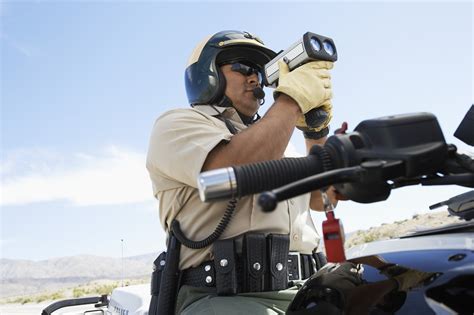Lidar Speeding Ticket? Your Guide to a Reduced Fine
Receiving a speeding ticket, especially one issued by lidar (Light Detection and Ranging), can be frustrating and expensive. But understanding the process and employing the right strategies can significantly increase your chances of reducing the fine or even getting the ticket dismissed. This guide will walk you through the steps to take after receiving a lidar speeding ticket and how to navigate the often-complex legal procedures.
What is Lidar and How Does it Work?
Lidar is a speed detection technology that uses laser beams to accurately measure the speed of vehicles. Unlike radar, which uses radio waves, lidar emits a concentrated beam of light that bounces off the vehicle and returns to the device. The time it takes for the light to return is used to calculate the vehicle's speed with high precision. This accuracy makes lidar-issued tickets difficult to contest on the grounds of equipment malfunction.
What to Do Immediately After Receiving a Lidar Speeding Ticket
The immediate aftermath of receiving a lidar speeding ticket is crucial. Here’s a step-by-step guide:
-
Review the Ticket Carefully: Note the date, time, location, speed limit, your recorded speed, the officer's name and badge number, and any other details. Check for any discrepancies or errors.
-
Don't Admit Guilt: Avoid signing anything admitting guilt. Your signature confirms the accuracy of the information, and admitting guilt might limit your options later.
-
Gather Evidence (If Possible): If you believe there was an error, try to gather evidence to support your claim. This might include dashcam footage, witness statements, or photos of the area that might indicate a faulty speed limit sign or other mitigating factors.
Can I Fight a Lidar Speeding Ticket?
Yes, you can fight a lidar speeding ticket, although it's often challenging. The success depends heavily on the evidence you can provide and the specific circumstances surrounding the ticket.
H2: What are the Common Grounds for Challenging a Lidar Ticket?
Several grounds exist for challenging a lidar speeding ticket, but they require strong evidence:
-
Equipment Malfunction: While rare, proving the lidar device was malfunctioning requires expert testimony and potentially technical evidence.
-
Improper Calibration: This requires proving the device wasn't properly calibrated at the time of the infraction.
-
Incorrect Speed Limit: If the speed limit sign was obscured, missing, or incorrect, you might have grounds to challenge the ticket.
-
Officer Error: Mistakes in recording the vehicle's speed or other details on the ticket can provide a basis for contesting the charge.
-
Lack of Due Process: If you believe your rights were violated during the traffic stop, this can be a basis for appeal.
H2: How Can I Reduce My Lidar Speeding Ticket Fine?
Even if you can’t get the ticket completely dismissed, there are ways to reduce the fine:
-
Traffic School: Many jurisdictions offer traffic school, which can result in a reduction of the points on your driving record and sometimes a lower fine. Check your local laws for eligibility.
-
Negotiation: In some cases, you might be able to negotiate a plea bargain with the prosecutor to reduce the fine.
-
Legal Representation: Hiring a traffic attorney can be beneficial, especially if the circumstances are complex or the penalties are severe.
H2: What are the Costs Involved in Fighting a Lidar Ticket?
Fighting a lidar ticket can incur costs. These might include:
-
Court Fees: These fees vary by jurisdiction.
-
Attorney Fees: If you hire a lawyer, expect to pay for their services.
-
Expert Witness Fees: If you need expert testimony, this can be a significant expense.
H2: What Happens if I Don't Respond to a Lidar Speeding Ticket?
Ignoring a speeding ticket is rarely a good strategy. Failure to respond can result in:
-
Increased Fines: The fines can significantly increase.
-
Suspension of Your Driving License: Your license may be suspended or revoked.
-
Collection Efforts: You may face debt collection actions.
-
Warrant for Your Arrest: In some cases, a warrant for your arrest can be issued.
Conclusion: Navigating the Lidar Ticket System
Receiving a lidar speeding ticket can be stressful, but understanding the process and your options can make a significant difference in the outcome. Carefully review the ticket, gather evidence if possible, and consider seeking legal advice if you wish to contest the charge. Remember, prompt action and thorough preparation are key to successfully navigating the system and potentially reducing your fine. Always check your local laws and regulations, as procedures vary by jurisdiction.

